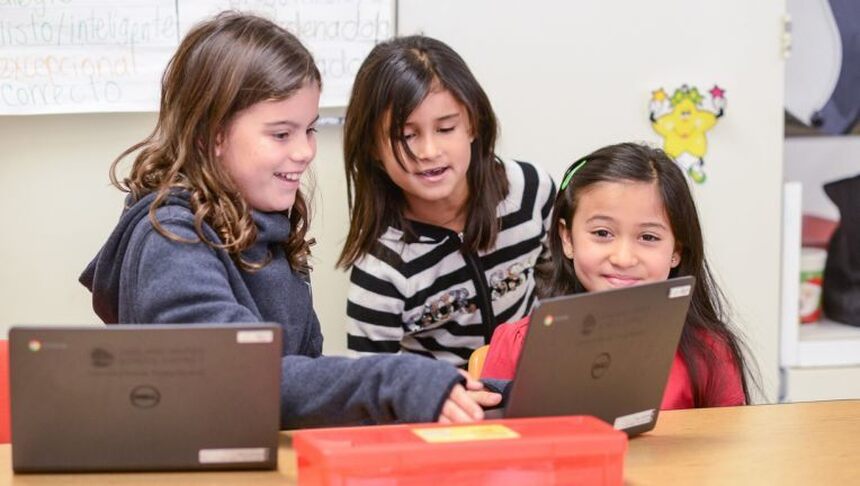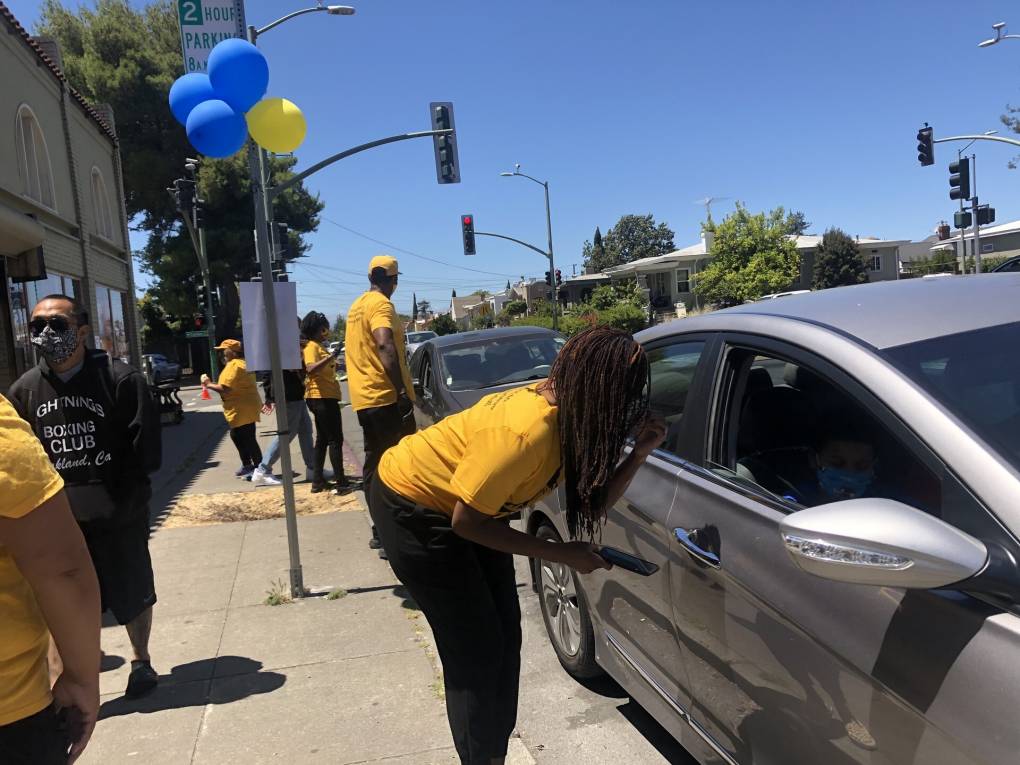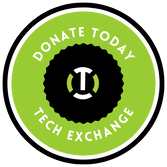|
By Lisa Fernandez | KTVU FOX 2 OAKLAND, Calif. - With $12.5 million in Twitter and other tech donations, the Oakland Unified School District announced that 25,000 Chromebooks should make it into the hands of students in late August, weeks after school starts. In a news release, OUSD said the order is still on track for delivery within the first two weeks in August, but students won't be able to get them until later in the month. School is set to start on Aug. 10. Because of coronavirus, schools in at least half of the state that are on a watchlist must resume classes online, not in person. Oakland is one of those school districts, which also has one of the biggest digital divides in the region between students who own computers and have access to WiFi, and those who do not. "While we cannot get the new computers into the hands of students in time for the start of the school year, in the spring, OUSD distributed 18,000 school-based computers to students on loan," the district said. "While it was not enough, it did provide access for most students in need as we were thrust into distance learning." OUSD students will continue to use those computers until those who qualify can get a new Chromebook. OUSD has bought 5,000 temporary devices as additional “loaners.” Most of the new devices are expected to be distributed in late August and September, with students returning loaned devices upon receiving the new laptops, bought with donations from Twitter CEO Jack Dorsey and Zynga founder Mark Pincus. District officials also said that they have been in negotiations with various internet providers to purchase uncapped internet plans, with no data limits, to ensure that students who currently have no internet access at home can access distance learning. At a meeting this summer, administrators said that about half the students don't have proper WiFi setups at home. To make sure that no one falls behind, all families with a student attending an Oakland public school will be asked to complete a Tech Check survey to provide updated information on students’ access to technology at home. If families don't have the internet at home, the district said it will provide alternate methods for completing the survey, such as on paper, and in person. The district asks that families who are able to buy Chromebooks to purchase them now, so if the schools fall short at the beginning of the school year, the district can dedicate its loaner inventory to students with higher needs. Students in other districts in California have tech needs, too. State Superintendent Tony Thurmond said Wednesday said that his department has already begun dispersing the $5.3 billion from the governor's office to local school districts, encouraging them to spend the money on technology. To date, Thurmond said that 700,000 public school students still don't have computers and 300,000 don't have proper hot spots -- situations that could be theoretically remedied with some of that state money. IF YOU'RE INTERESTED: Learn more about #OaklandUndivided at www.oaklandedfund.org/digitaldivide If you want to donate a computer or hotspot, contact [email protected]. If you want to make a donation or discuss a potential financial contribution, contact: David Silver, Mayor’s Office of Education at [email protected]; Jonathan Osler, Oakland Public Education Fund at [email protected] or Curtiss Sarikey, Oakland Unified School District at [email protected].
3 Comments
By Julia McEvoy | KQED Oakland Reach organizers in East Oakland last month handing out laptops and other summer school supplies to the families of Oakland Unified School District students. (Vanessa Rancaño/KQED) Thousands of students across California who still don’t have access to computing devices and reliable high-speed internet remain at serious risk of being left at the starting gate, as most schools prepare to begin the academic year online in less than a month.
The stubbornly persistent digital divide — separating those with access to the internet and computers from those without — has been overtly highlighted by the COVID-19 pandemic as a serious education equity issue. And it remains a formidable hurdle to the successful relaunch of distance learning in many urban and rural school districts. Oakland Unified officials pledged to overcome that divide after last spring's inconsistent and often problematic efforts. Some 3,400 students were found to have little or no digital connection, with many others left trying to do assignments on their smartphones or sometimes forced to break shelter-in place rules in order to find internet access elsewhere. In May, when Oakland city leaders launched a campaign to raise $12.5 million to ensure that every student who needed it would have laptops and internet hotspots, Twitter CEO Jack Dorsey responded with a whopping $10 million donation, inspiring other donors. In total, the city and school district raised $13 million, and is now working on a short timeline to secure computers and internet connections for every child in the district who needs them, all before school starts on Aug. 10. “As you can imagine, supply chains are challenging right now,” said David Silver, director of education for Oakland Mayor Libby Schaaf, who helped seal the deal with Dorsey. “So we do not have the computers yet, but they are on the way. And our goal is to make sure that we get those to kids and families as soon as possible.” Silver said Dorsey’s gift will ensure every child has an internet connection, a computer and the tech support they need. “It's not just about a child getting a device, but it's also how do you make sure if you have a problem, how do you actually troubleshoot that?” he said. So far, the district has spent $5.5 million of the funding on ordering 25,000 Chromebooks. Another $3.8 million is being spent on wireless hotspots, one for each student in a family, to ensure high-speed connectivity for streaming video instruction, according to OUSD Chief of Staff Curtiss Sarikey. “If there are three children, each would have a hotspot just to ensure that there won't be any issues with multiple lines slowing it down to the point kids can't track video,” said Sarikey, adding that the district tested various products and consulted with teachers on the purchase. “We heard a lot from teachers that they spent a lot of time doing tech support during shelter in place, helping kids troubleshoot things that were coming up,” Sarikey said. He added that the district will also provide high-speed broadband to some families at a subsidized rate. At a recent board meeting, OUSD Superintendent Kyla Johnson-Trammell said thousands of students still don't have the digital connections they need. Seth Hubbert, executive director of Tech Exchange, an Oakland-based nonprofit working with the district, doesn’t expect those computers and other devices to be delivered until early August. That's when his team will be tasked with entering all the equipment through a data system developed for the district by Salesforce, and then deliver them to school sites where students can pick them up. “We anticipate about 110 pallets worth of computers, in batches of 1,000, so it's going to be just an awesome visual,” Hubbert said. In preparation, Tech Exchange has leased extra warehouse space and hired temporary staff to help process the computers quickly, while adhering to COVID-19 social distancing protocols. To fill the gap, OUSD distributed some 18,000 district-owned computers to students throughout the spring, and Hubbert said thousands more are still available for students who need a device now. But those loaner computers are district property and can’t be gifted to students, said Hubbert. The plan is to swap them out with the new Chromebooks that students can keep. Still, some Oakland teachers remain skeptical about the district’s ability to deliver on its promise of equipping students by the first day of school. The Oakland Education Association, the local teachers union, is currently in negotiations with the district over distance learning working conditions. The contract specifies that teachers have to agree to any change in working conditions, including a switch to distance learning. Some union representatives have said teachers would not agree to start the school year without proof that all students are connected with devices and reliable high-speed internet access. “There's this push for us to start school on Aug. 10,” said Jamila Brooks, a teacher at Montclair Elementary School who is part of negotiations with the district. “But not every family in our district knows how to use a device, how to access Zoom, and so that's been one of our new challenges.” Brooks said many teachers are highly skeptical of the district's ability to deliver on its promises. She noted the district's recently announced plan to ask families of all OUSD students to fill out an online form outlining their digital needs, scoffing at the flawed logic of asking people without online access to fill out an online form. “We have to make sure that the devices are in hand, they're working, there are hotspots, people are adequately trained, before we can hit the ground running,” Brooks insisted. #OaklandUndivided, the coalition behind the city’s fundraising campaign, is working with roughly 20 community organizations to help families without internet access register for the digital tools they need. Over the summer, parent advocacy group The Oakland Reach, one of the groups involved, took matters into their own hands, raising money for devices and distributing them to local families to support summer learning. Tech Exchange's Hubbert is hoping #OaklandUndivided is a step forward toward the concept of universal basic internet, and is encouraged that some Oakland leaders are considering the concept of the internet as a public utility. “There's now a greater number of people working on these problems at (the) local level, state level, federal level. That's certainly a hope of mine, that this (pandemic) kind of wakes people up,” he said. “Digital divide gaps are still huge. It's time we rethink how we're supporting our most underserved communities with access.” |
Categories
All
Archives
July 2024
|




